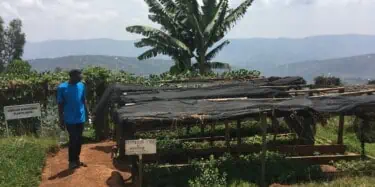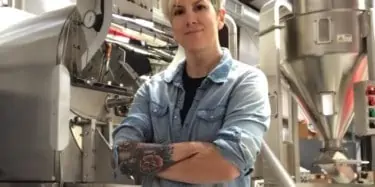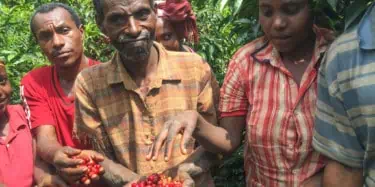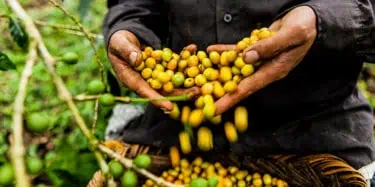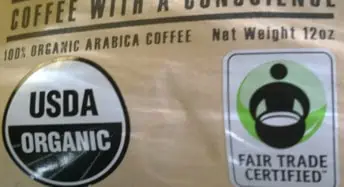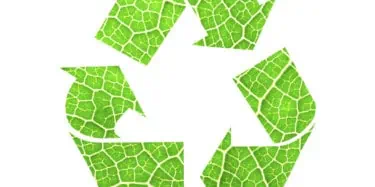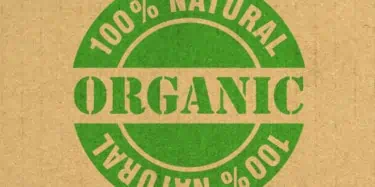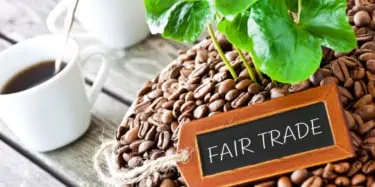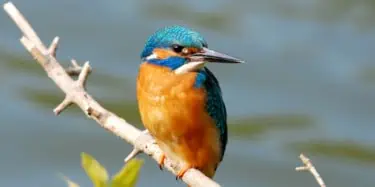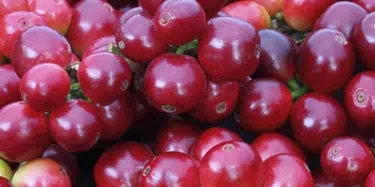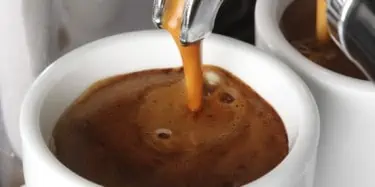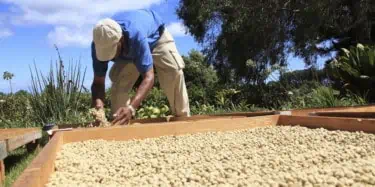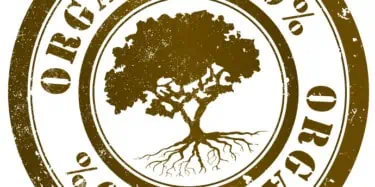Although the term “fair trade” has been in use for over 75 years, it is not linked to one specific group or organization. Conceptually, fair trade is a global movement that includes producers, consumers, various nongovernmental and nonprofit organizations, and for-profit businesses; it is a system designed to build a more equitable trading model for a range of products, including coffee. In 1973,
Tasting Reports – Social/Environmental
Coffee Review has published more than 250 monthly coffee tasting reports since February 1997. The tasting reports below -- featuring social and environmental topics such as organic and fair-trade coffees -- appear in reverse chronological order. You may refine your search by using the key word search feature that appears in the page header. The content in tasting reports and associated reviews was correct at the time of publication but may not remain accurate over time.
Women in Coffee: Why It Matters That “She’s the Roaster”
Last summer, we began our exploration of women's roles in the complex coffee supply chain by looking at the work of farmers—women who work in coffee production as pickers, managers, members of cooperatives, and owners of small farms. In this month's report, we turn our attention to those women who are crucial in the next step of the supply chain: turning green coffee into roasted. We structured
Organic-Certified Coffees from Africa: Benefits, Challenges, Complexities
Certified organic coffees must be propagated, grown, processed, transported, stored, and roasted without contact with synthetic chemicals—particularly without contact with pesticides and herbicides. The certification process (carried out by a variety of organizations operating inside a common framework) is lengthy, thorough, rather expensive, but apparently reliable and free of abuse. The use of
The New Nicaragua: Direct Trade Coffees Rule
When we first reported on coffees from Nicaragua, in 2004, the overarching theme was economic development. Specialty coffee was viewed as a way of opening access to economic and social benefits for Nicaragua’s many small- to medium-holding coffee farmers, most of whom had been decimated by the global drop in coffee prices during 1999-2003, and prior to that, by the long war that isolated the
Fair Trade Certified Coffees
Consumers who prefer to buy coffees that promise to reconcile pleasure with generosity toward the people and environment responsible for that pleasure, and who want to feel some solid confirmation regarding the generosity part, should find useful recommendations among the ten coffees reviewed this month. Nine of the ten are Fair Trade Certified, meaning that, according to the certifier, Fair Trade
Cause Coffees
The specialty coffee movement has always attracted idealists of various kinds, from those obsessed with sensory perfection – the perfect espresso shot, the perfect cup – to those who simply are looking for stuff to sell in a way that will help the world. The two idealisms are usually entwined, of course, at least in publicity materials: Do good by drinking good coffee, the websites and packages
From the Transparently Pure to the Creatively Edgy: Twelve Certified Organic Coffees
Organic is the oldest and best established of the various certifications – Fair Trade, Rainforest Alliance, etc. – represented by the little seals that cluster on coffee packaging, all of them intent on reassuring the buyer that something positive has happened with the coffee inside the bag, even though it may not always be clear to the casual consumer what exactly it is or was. With organic
Quality and Fair Trade Certified Coffees
Fair Trade certification has been on a bit of roll of late, steadily expanding both at origin and in the marketplace. Its producer programs have extended from their original base in Central America to more far-flung origins like Ethiopia and Sumatra. Fair Trade certified coffees are now sold in volume in at least one big box store, Sam's Club, and show up in smaller quantities at Target.
The Devil’s in the Details: Bird-Friendly and Shade-Grown Coffees
Suppose the following: You look out your window and see a suddenly appearing flock of song birds. Or perhaps you hear their familiar, melodic burbling first, then see them. For many of us this is a precious moment, particularly so because we often know that these flitting, vulnerable creatures are only making a brief stopover before moving on until (hopefully) making a return next year. Those who
The Rainforest Alternative: Twelve plus One Rainforest-Certified Coffees
It has been well over ten years since the Sustainable Agriculture Network launched the Rainforest Alliance Certified program for coffee. Unlike the more widely publicized Fair-Trade certification, which is principally a socio-economically focused certification aimed mainly at helping democratically-run cooperatives of small-holding, peasant growers achieve better prices for their coffees,
Fair-Trade Coffees: The Controversy and the Cup
There are likely to be two categories of reader for this article: Those who know something about Fair Trade coffees (and who probably hold strong opinions on the subject) and those who don't. For those who don't, Fair Trade certification is an assurance from an internationally recognized third-party certifier (in the United States the certifier is TransFair USA) that the green coffees contained
Progressive Crema: Organic and Fair-Trade Espresso Blends
Here are three things you need to understand to fully appreciate the achievement embodied in the exceptional espresso blends reviewed this month: First, the espresso brewing system produces its best results from coffees that are balanced but complex. Typically, it takes a minimum of three different coffees, often as many as five, to produce an espresso blend that is both complete enough and
Savory Partnerships: Relationship Coffees
When putting together samples of relationship coffees for this month's review, it became obvious that "relationship" is as ambiguous a word in the world of coffee as it is in the world of people, where "having a relationship" can mean anything from virtually married to, well, something considerably more casual. What the coffees reviewed here have in common is that their path from tree to shelf
The Fair-Trade Cup: Quality and Controversy
It has been some years now since the Fair Trade movement sprung itself on the specialty coffee world, using a passionate and skillfully managed media campaign to persuade a core of concerned consumers that they ought to pay a bit more for coffees that return more money directly to the small-holding farmers who grow the coffee. The timing couldn't have been more appropriate, because about the
Fair-Trade Coffees
Given the brutally low prices being paid to farmers for their coffee at this moment in history, it is difficult to be critical of a concept like Fair-Trade certification. Larger farms are threatened with bankruptcy, peasant farmers with starvation, and the American specialty coffee industry with deteriorating supplies of fine coffee. Fair Trade is one response to this crisis. A Fair-Trade seal
Fair-Trade Coffees
Big Problem, Controversial Solution This is a big, stubborn problem, which at the moment is addressed by a few small, tentative solutions. Fair-trade coffee, the subject of this month's cupping, is one of these hopeful solutions, a relatively new one that has provoked some controversy among coffee professionals. To simplify, the fair-trade movement determines a formula for a "fair" price for
Organically Grown Coffees
"Organics," as insiders call them, are coffees certified by international agencies as grown, transported, stored and roasted without contact with pesticides, herbicides, fungicides, artificial fertilizers or other purported multisyllabic villains. They offer aficionados an impeccable way of both looking after their own health as well as the health of the planet and its people. Not only are
Single-Origin Organic Coffees
The specialty coffee business was founded on a sort of practical idealism. The great iconoclastic tradition of the coffee house, coffee's myth-embellished history as the beverage of the people, the anti-corporate stance of the early specialty coffee culture, all seemed to attract leaders who were interested in making a difference as well as in making a living. Some years ago, however, a couple
Environment-Friendly Coffees
Of all of the behind-the-scenes debates that grumble their way through coffee cupping rooms, those that cluster around coffee and the environment mutter the loudest. Are environmentally progressive coffees simply second-rate beans masquerading under a growing lexicon of buzz words like organic, shade-grown, bird-friendly, and the latest and grandest, sustainable? Should coffee consumers be











